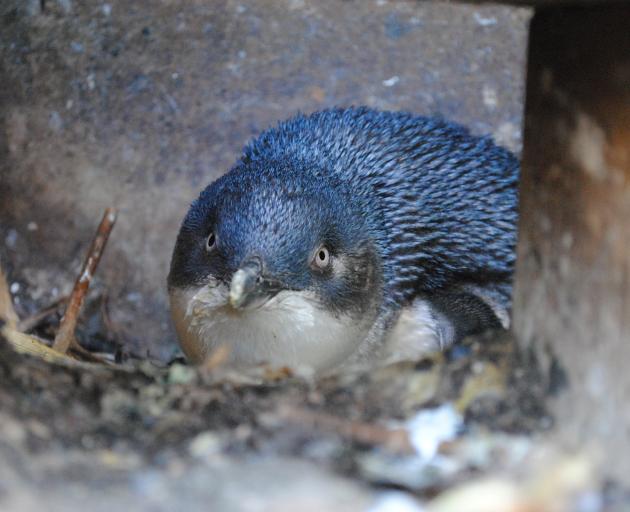Tuesday, 1 November 2016
By Hamish MacLean

Massey University researchers are blood-testing Oamaru birds. PHOTO: SUPPLIED
Massey University researchers are in Oamaru studying penguins' responses to handling and Massey comparative endocrinology professor John Cockrem said the study could help researchers find out if certain penguin characteristics make some better breeders or fishers.
"We're interested in what makes a successful penguin,'' Prof Cockrem said.
He and four Massey master's students, Henry Elsom, Shelley Ogle, Kelly Long and Rachel Choi, have been in Oamaru for the past five weeks testing stress responses of dozens among the hundreds of blue penguins that make their home in Oamaru Harbour.
Under the stress of handling by the researchers, blood samples taken would show the amount of the steroid hormone corticosterone an individual bird secreted while in distress.
Prof Cockrem said birds that showed high levels of the hormone, labelled "reactive personality'', or "high-stress birds'', might be considered more aware of what was going on around them. Those individuals with a relatively smaller response would be deemed "proactive'' penguins.
"There is a whole set of behavioural characteristics that go with that [blood testing], which together we call 'personality','' Prof Cockrem said.
"Are the birds, the 'higher-stress birds', with their particular personality, are they more successful than the 'low-stress birds'? ... How does this relate to the foraging? Are some birds consistently more successful at foraging than other birds?''
The extensive breeding data of individual birds compiled at the colony would be included in the study, as would new data showing foraging performance.
Oamaru Blue Penguin Colony marine biologist Dr Philippa Agnew said new devices could be attached to five birds to learn more about their days at sea.
Four sensors in a single device tracked: location of the birds; diving (with a pressure sensor); acceleration; and temperature.
The four measures would identify "prey pursuits'' as well as the "foraging effort'' of each bird - "how many times a day they dive, how far they go out to sea''.
"We can collect so many different variables to look at how much effort each of
them puts into it - and then look at things like chick growth,'' Dr Agnew said.
Once a bird returned, the data could be downloaded, the device could be recharged, and attached to a different bird.
Prof Cockrem first began collaborating with Dr Agnew in 2012.
This year's study could be applied to the conservation of penguins, and would produce joint publications between Massey University and the colony, a Massey media release, issued yesterday, said.
The current $660,000 upgrade of the Oamaru Blue Penguin Colony facilities, including upgraded research facilities, would hopefully make researchers' visits more common, Dr Agnew said.
source







No comments:
Post a Comment